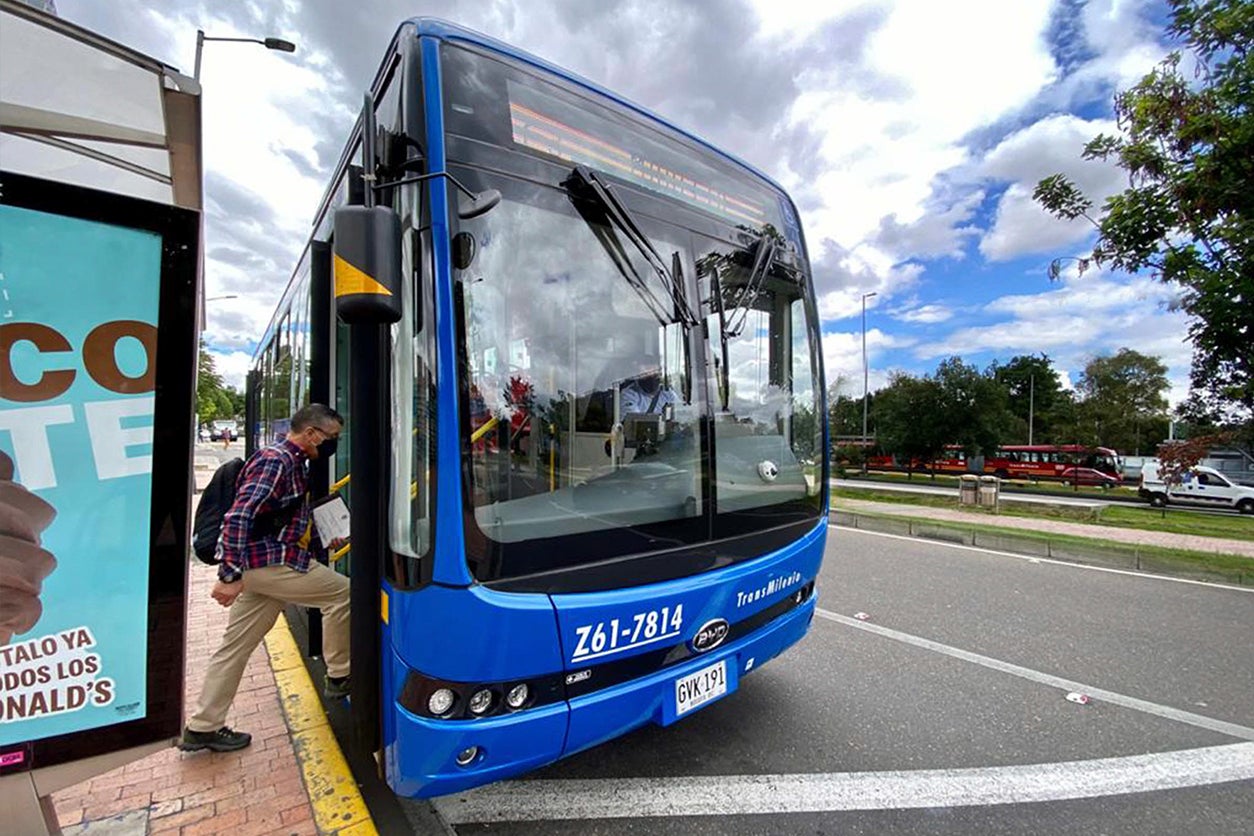As infrastructure generates 70% of greenhouse gas emissions globally, to achieve significant global emission reductions it is essential to promote a low carbon economy in the coming decades. In Latin America, however, Gross-Domestic-Product (GDP) investment levels in infrastructure have not matched green growth objectives in recent years. In the case of Colombia, around 7% of GDP per year would be required compared to the 3.6% current investment levels.
In light of this colossal challenge, the United Kingdom and the IDB Group joined forces to create and execute, respectively, the UK Sustainable Infrastructure Program (UKSIP) to reduce emissions and to spur transformational changes. Through the UK Program, this partnership will provide around $230 million (UK£ 177 million), between 2018 and 2022 to catalyze private sector investment in sustainable low carbon infrastructure, considering the IDB’s Sustainable Infrastructure Framework as a base.
Moreover, with the socioeconomic crisis generated by the pandemic, investment in sustainable infrastructure is crucial for economic recovery and the UKSIP can play a fundamental role in closing the infrastructure investment gap sustainably. The program expects to mobilize private sector financing through innovative finance solutions with different instruments such as technical cooperation, blended financing and new models of public-private partnerships (PPP) with high multipliers and co-benefits. Colombia is one of the four countries (together with Mexico, Brazil and Peru) that can benefit from this support.
Results in Sustainable Infrastructure: Energy and Transport in Colombia
To date, Colombia has seen excellent results derived from the resources provided by the UKSIP. In October 2019, UKSIP supported the design of an innovative energy auction, financing studies about guarantees and a risk and bankability analysis of the awarded projects. Similarly, it provided support to the Energy Sector Transformation Mission that is restructuring the country’s energy sector. The auction’s results will be essential in the country’s Non-Conventional Renewable Energy (NCRE) expansion, which will increase renewable energy capacity from less than 1% in 2018 to 12% in 2022. Hence, support from UKSIP is one of the fundamental reasons why the government will exceed its goals in terms of NCRE capacity. This translates into reaching 2,250 MW, 66% more than what was targeted (1,500 MW) in the Government’s National Development Plan 2018-2022.
Regarding the transportation sector, the IDB and UKSIP alliance has been instrumental to support the deployment of electromobility, particularly in Bogota. The city is pioneer in Latin America and the Caribbean in acquiring an electric bus fleet by tender. In 2019-2020, the program supported the tender structuring, especially on the definition of costs and remuneration rate for electric buses, to achieve a win-win business model. Currently, the city is receiving support to create a public operator of electric buses (Transmilenio). This will ensure the operation of electric buses awarded by Transmilenio as well as the continuity of service in all the territory. In total, 1,485 electric buses will be added, making Bogota the city with the largest fleet of e-buses outside of China. And in terms of emissions, by 2022 the city will have reduced emissions by 155 tons of CO2 and 30 tons of particular matter per year.

The National Infrastructure Agency (ANI in Spanish) is also benefitting from the program in the design of sustainable infrastructure policies and tools. This will allow the assessment of projects and the creation of a benchmark in the sector, within the 5th Generation of Infrastructure PPPs (5G Program). Also, to improve the navigability conditions of the Magdalena River, support from UKSIP was given to ANI to structure a PPP project to promote multimodal transport with the potential to reduce the cost of exporting a container on the Bogota-Caribbean corridor and to reduce emissions significantly.
New Horizons
In this context, previous work and new strategic areas of UKSIP support were presented and discussed on a high-level virtual meeting on June 9th. Representatives from the IDB Group, the Government of Colombia, and the UK’s Department for Business, Energy & Industrial Strategy (BEIS), including the UK embassy in Colombia participated in the event. Attendees reviewed the progress achieved in moving forward the sustainability and low carbon agenda thanks to the financial support from the UKSIP and technical support from the IDB Group.
The three parties agreed on moving forward with an ambitious agenda, in line with Colombia’s NDC target of reducing emissions by 51% with respect to the business-as-usual scenario by 2030. Such an agenda will include catalytic interventions in the infrastructure sectors with the highest potential for climate mitigation and transformational impact—renewable energy and clean transport, including electromobility. Improving upstream planning, project preparation and implementation, and easing financing, will be the work pillars going forward.
As a result of this important dialogue, both ongoing and new areas for potential UKSIP funding were discussed. More technical assistance will be provided to Colombia in key areas of the energy transition strategy such as large-scale renewable energy and off-grid connections, among others. In addition, the current UKSIP support to the Hydrogen Roadmap, which can place Colombia as a potential green hydrogen exporter, may continue. And the ongoing Energy Sector Transformation Mission, which requires reforms to modernize the institutional and regulatory energy framework, can also benefit from more UKSIP support. In clean transport, future interventions can include the implementation support of the National Logistics policy and support to the Railway Master Plan. In addition, a transformational change that is projected is transitioning to higher rates of electric mobility in Colombian cities where UKSIP can be catalytical. This is also in line with the strategic areas of the upcoming COP 26 event hosted by the UK in November in Glasgow.
The IDB Group is keen to continue to accelerate UKSIP efforts in these areas and to keep achieving magnificent results: providing technical assistance from the public side and then private advisory services that ultimately will pave the way to sustainable low-carbon infrastructure. UKSIP will then enable further private investments that ultimately will contribute to closing the investment gap in infrastructure in Colombia in tune with international climate agreements.
Photo credits: Transmilenio S.A.


Leave a Reply